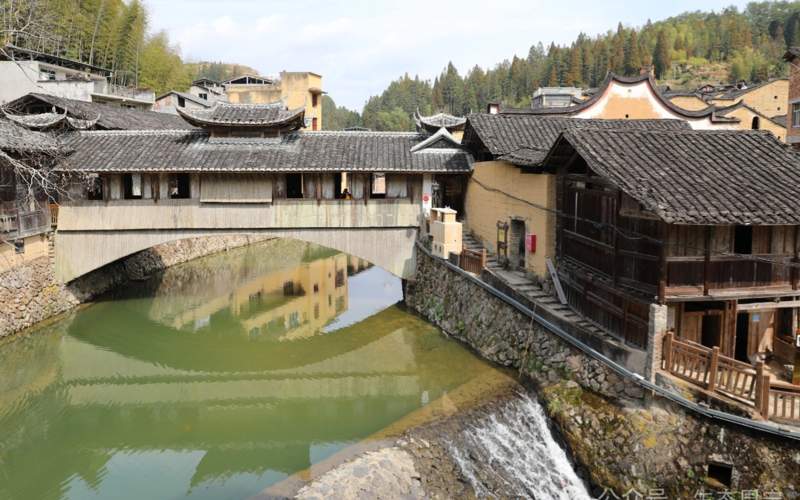UNESCO adds traditional design and practices of building Chinese wooden arch bridges to its Representative List of Intangible Cultural Heritage
The United Nations Educational, Scientific and Cultural Organization (UNESCO) added traditional design and practices for building Chinese wooden arch bridges to its Representative List of Intangible Cultural Heritage of Humanity, People's Daily Online reported.

The wooden arch bridges, found mostly in eastern China's Fujian and Zhejiang provinces, are built without a single metal nail or rivet. Instead, they rely solely on intricately fitted wooden structures.
A traditional Chinese-style timber superstructure tops the bridge, featuring a grand roof that adds weight and bolsters the structure's stability.



"The craftsmanship is passed on orally and through personal demonstration, or from one generation to another by masters teaching apprentices or relatives within a clan in accordance with strict procedures. They [bridges - edit] are important gathering places for local residents to exchange information, entertain, worship and deepen relationships and cultural identity. The cultural space created by traditional Chinese arch bridges has provided an environment for encouraging communication, understanding and respect among human beings. The tradition has declined however in recent years due to rapid urbanization, scarcity of timber and lack of available construction space, all of which combine to threaten its transmission and survival," UNESCO says.
🎉Approved! On Dec 5, the traditional design and practices for building Chinese wooden arch #bridges were successfully inscribed into the Representative List of the Intangible Cultural Heritage of Humanity by UNESCO. 👇Check out the beautiful wooden arch bridges in #Ningde in the… pic.twitter.com/bM03MYahKw
— Ningde, China (@NingdeCity) December 6, 2024
As previously reported, Betashar, Kazakh traditional wedding ritual, was included into the UNESCO Representative List of the Intangible Cultural Heritage of Humanity.
